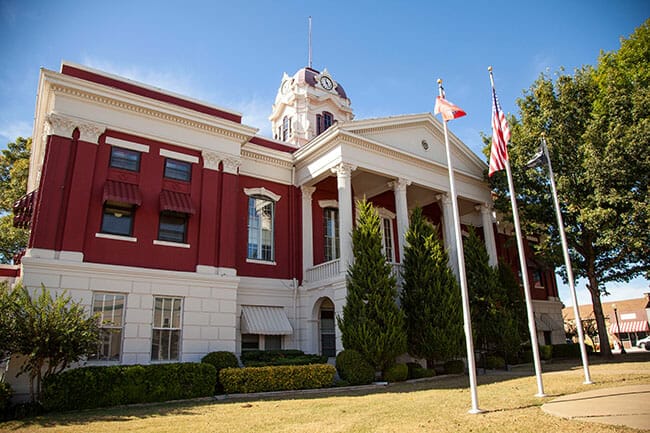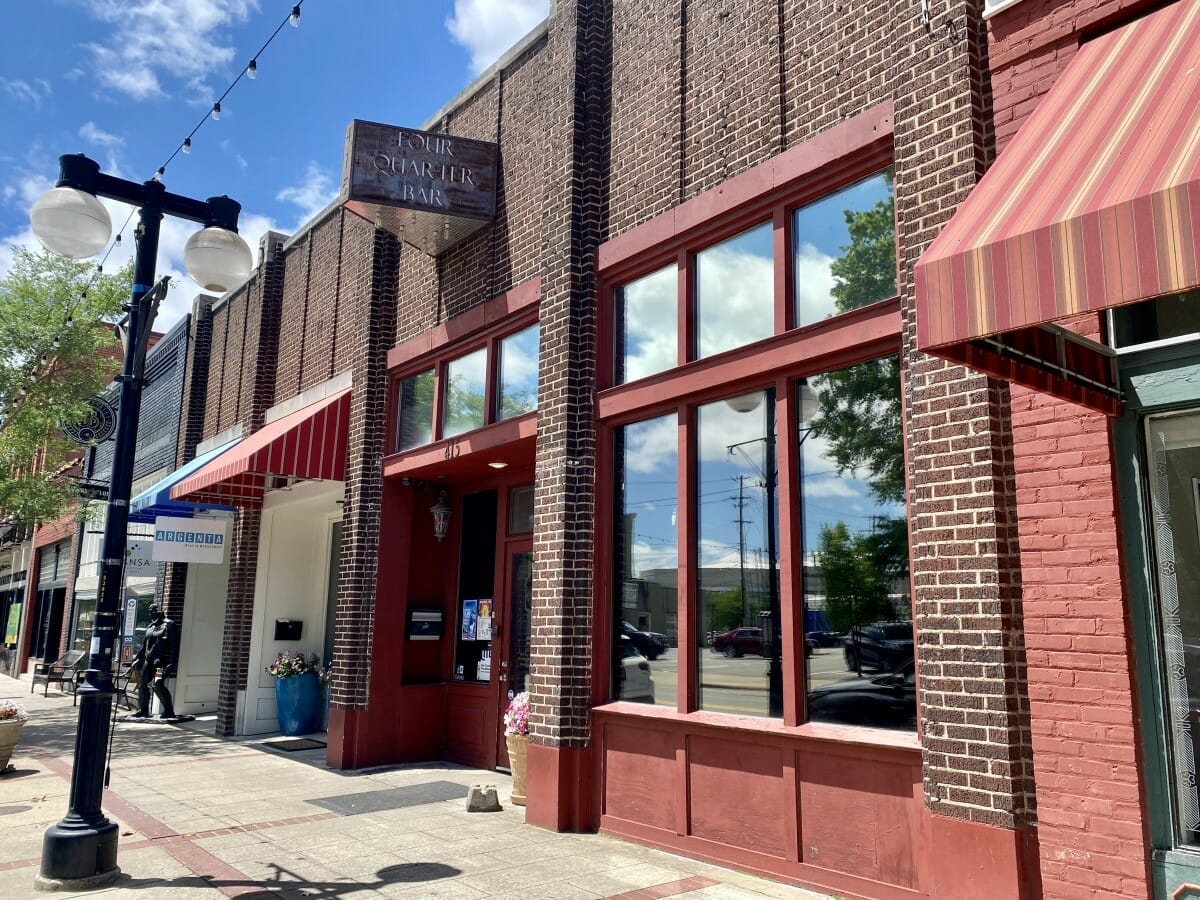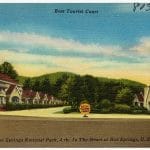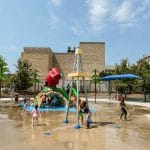

Uh oh...
It appears that you're using a severely outdated version of Safari on Windows. Many features won't work correctly, and functionality can't be guaranteed. Please try viewing this website in Edge, Mozilla, Chrome, or another modern browser. Sorry for any inconvenience this may have caused!
Read More about this safari issue.

A husband, a father, a minister, an activist, Dr. Martin Luther King, Jr. undoubtedly left a mark everywhere he went. His legacy is one we celebrate every year, however, what exactly did Dr. King do within the Natural state? Let’s chart his journey.

1958 – Dr. King speaks at the University of Arkansas at Pine Bluff
In 1958, Dr. King was beginning to gain traction as a chief voice in the civil rights movement. His growing impact caught the attention of the commencement committee of the Arkansas Agriculture Mechanical and Normal College (AM&N), now the University of Arkansas at Pine Bluff (UAPB). King was invited to be the keynote speaker at the May ceremony and his message centered on upheaving the status quo in order to end segregation.
A newspaper article about King’s presence quotes the activist as saying, “Through the use of non-violence, understanding and goodwill we will achieve desegregation and integration.” He said, “We will come together spiritually because men will see that it is right and natural. We believe that we are on God’s side and that God is with us. Go home determined to revolt against segregation and discrimination everywhere.” [1]

A member of the 1958 graduating class and former chancellor of UAPB, Lawrence A. Davis, Jr. said Dr. King was a controversial figure and the community as a whole was not receptive of his presence.
“He was viewed in a very negative way by a lot of people, both Black and White, and the people on the committee recommended [Dr. King] knowing it would create a lot of controversy.”

Davis’ father, who was president at the time, received severe backlash for inviting King.
“You double-crossed us,” Davis remembers the state legislature telling his father. “The next year they decreased the school’s [funding].”
Today, UAPB holds the honor as the only institution in Arkansas at which Dr. King spoke.

1958 – Dr. King attends the graduation of Ernest Green
Following the AM&N commencement, Dr. King stayed in Arkansas and made his way to the graduation ceremony of Ernest Green from Little Rock Central High School. Green first made history as one of the nine African-American students to integrate Central; he made history a second time as the first African-American to graduate from the school.
Dr. King attended the graduation as a guest of Green’s family and shook the hand of an elated Ernest following the ceremony. He even gifted Green a $15 check.
“I get asked all the time if I cashed the check,” Green told a Michigan State University radio station. “As a 16-year old with graduation presents…that was a check I wasn’t saving. I cashed it right away.”
Green revels in being one of the only people in the world to have Dr. King attend their graduation and marks it as an iconic event in his life. [2]
For Dr. King, this was a rare moment where he was able to witness firsthand the impact and progress our country had made due to his advocacy efforts.

1963 – Dr. King ministers at Arkansas’s oldest African-American church
A few years later, Dr. King returned to Arkansas. This time he was here to preach at the oldest African-American church in the state, First Missionary Baptist Church, a nationally recognized historic place in downtown Little Rock. The church was founded in 1845 by then-slave Wilson Brown, 15 years before the Civil War began and 18 years before the Emancipation Proclamation.[3] First Missionary Baptist became a foundation of the African-American community for both spiritual and political needs.
In April of 1963, Dr. King gave the church’s 118th-anniversary sermon. This was just four months before the March on Washington and the delivery of his iconic “I Have a Dream” speech. The podium and the Bible he used are still on display in the church’s sanctuary.
The church continues to honor the legacy of Dr. King by hosting an annual worship service on Martin Luther King Day.
[1] Courtesy of the collections of the University Museum and Cultural Center on the campus of the University of Arkansas at Pine Bluff.
[2] Buren, April Van. “Little Rock Nine Student’s Journey from Arkansas to EL.” WKAR. Michigan State University, 24 Feb. 2016. Web. 13 Jan. 2017.
[3] Congressional Record, V. 151, Pt. 6, April 21, 2005 to May 5, 2005.
Sorry, there were no posts found.
Join the Conversation
Leave a Comment
5 responses to “Dr. King’s Journey Through the Natural State”
 Leave a Reply
Leave a Reply
We do the work.
You check your email.
Sign up for our weekly e-news.
Get stories sent straight to your inbox!






 Leave a Reply
Leave a Reply
[…] I made a list of things I wanted to listen to and watch on MLK weekend, but I didn’t finish them so I am still listening to speeches. (Here are five speeches that we don’t usually listen to.) I have a couple of new favorites that I am putting on my phone. I re-read the Letter from a Birmingham Jail, which should be read aloud in churches often, as it is still oh-so-relevant. I also appreciated seeing MLK’s journey through Arkansas. […]
[…] out the event that Historic Washington State is hosting. Then on Monday, celebrate the life of Martin Luther King, Jr. at the many events around the state. Cheers to a weekend in […]
I am a member of FMBC & was there sitting in the window. LRPD would not provide protection so the black men of the city all volunteered. Prior 2 the service there was a March of these men on Gaines St., ending at the church
I WOULD LOVE TO HAVE THAT ARTICLE!!!
Hi Bill! Go to http://arkansasquilttrails.com/ and click on Stone County. They have a map.